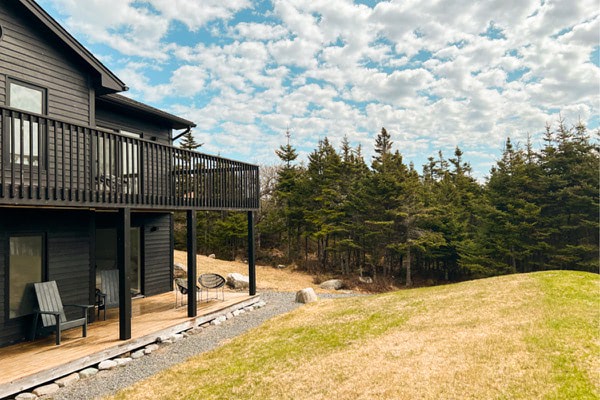Thinking about cottage improvements? We’ve got you! Here are some suggestions to help you update your cottage this season.

Is a reverse mortgage the right product for me?
Reverse mortgage
Thinking and planning for the future can feel stressful at times. Sitting in a coffee shop you will hear people talk about saving for retirement. You might also worry about the increasing costs of retiring. It can seem scary thinking about the future and not knowing how long your retirement will be. The average life expectancy is rising and there is some uncertainty in the future. Therefore, it’s important to know your options for accessing your savings into retirement. One of these options is the reverse mortgage.
Leveraging equity in your home
For the majority of Canadians entering retirement, home equity is one of the largest sources of savings. Many baby boomers are crossing into retirement but have not saved up enough money to survive retirement. However, many baby boomers are house-rich and cash-poor. This makes a reverse mortgage a viable option for them to make it through retirement comfortably. Homeowners in Canada can access their home equity through a reverse mortgage. A reverse mortgage provides you extra income during your retirement years. This works by giving you access to the equity you have built-in your home.
How does it work?
A portion of your home’s equity is converted into cash with a reverse mortgage. You can access up to 55 per cent of the home value depending on your age. Depending on a few different factors, like the age of the borrower and the value of a home, it will determine the amount a home owner can borrow. Funds are registered against the title of the property as a mortgage. However, the funds borrowed do not need to be paid off the same way as a mortgage. The borrowed money only needs to be paid off when the owner chooses to sell the property or move.
If you are no longer using the property as your primary residence, you will be required to pay back the loan. Additionally, if the homeowner passes away before the money has been repaid, the property will be sold, and the bank will collect the money and interest. If there is any money left over after the property was sold, beneficiaries of the homeowner are free to collect it.
Is it good for me?
Equity in your home is an asset to homeowners across Canada. If you are planning on living in the home for a number of years, a reverse mortgage could be beneficial. You will face some costs by taking out money using this product. Therefore, if you are planning on moving in a few years you may not profit from it. For home owners and spouses that are at least 55 years old, getting a reverse mortgage could be a good retirement cushion. Reverse mortgages work best for older Canadians that have a lot of equity in their home.
A reverse mortgage helps Canadian homeowners retire safely and securely. Helping to reduce the stress of knowing if they saved up enough money to last through retirement. Moreover, a reverse mortgage may help fill the gap until a homeowner’s investments stabilize if the investment market takes a turn for the worse. If the funds were used to earn an investment income, the interest paid on the reverse mortgage is tax-deductible.
The next time you’re sitting in a coffee shop, listening to young people map out their retirement plan you can feel comforted knowing you have an extra cushion of funds. If you would like to learn whether a reverse mortgage can help you, give us a call. You can get in touch with us here.


